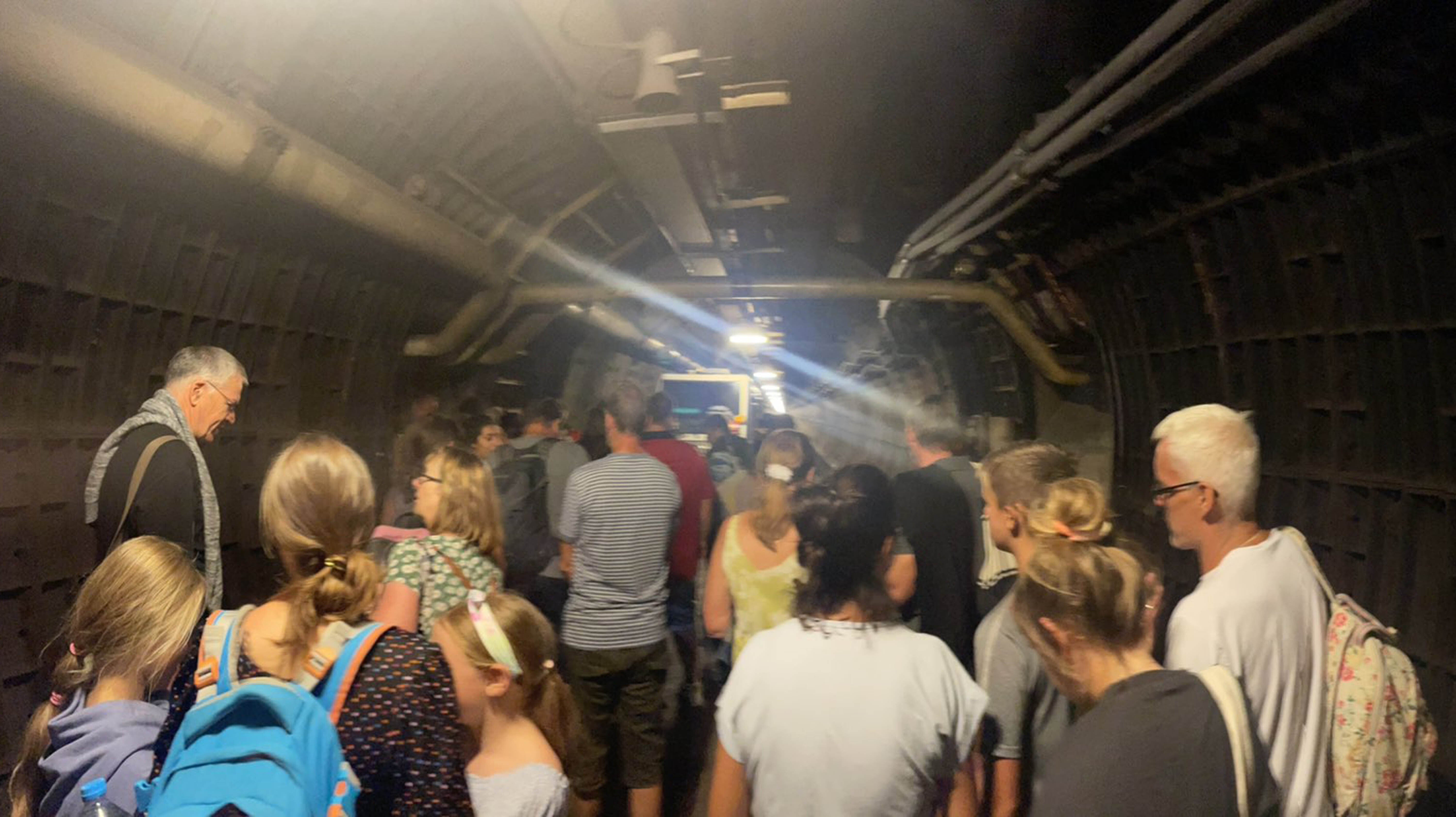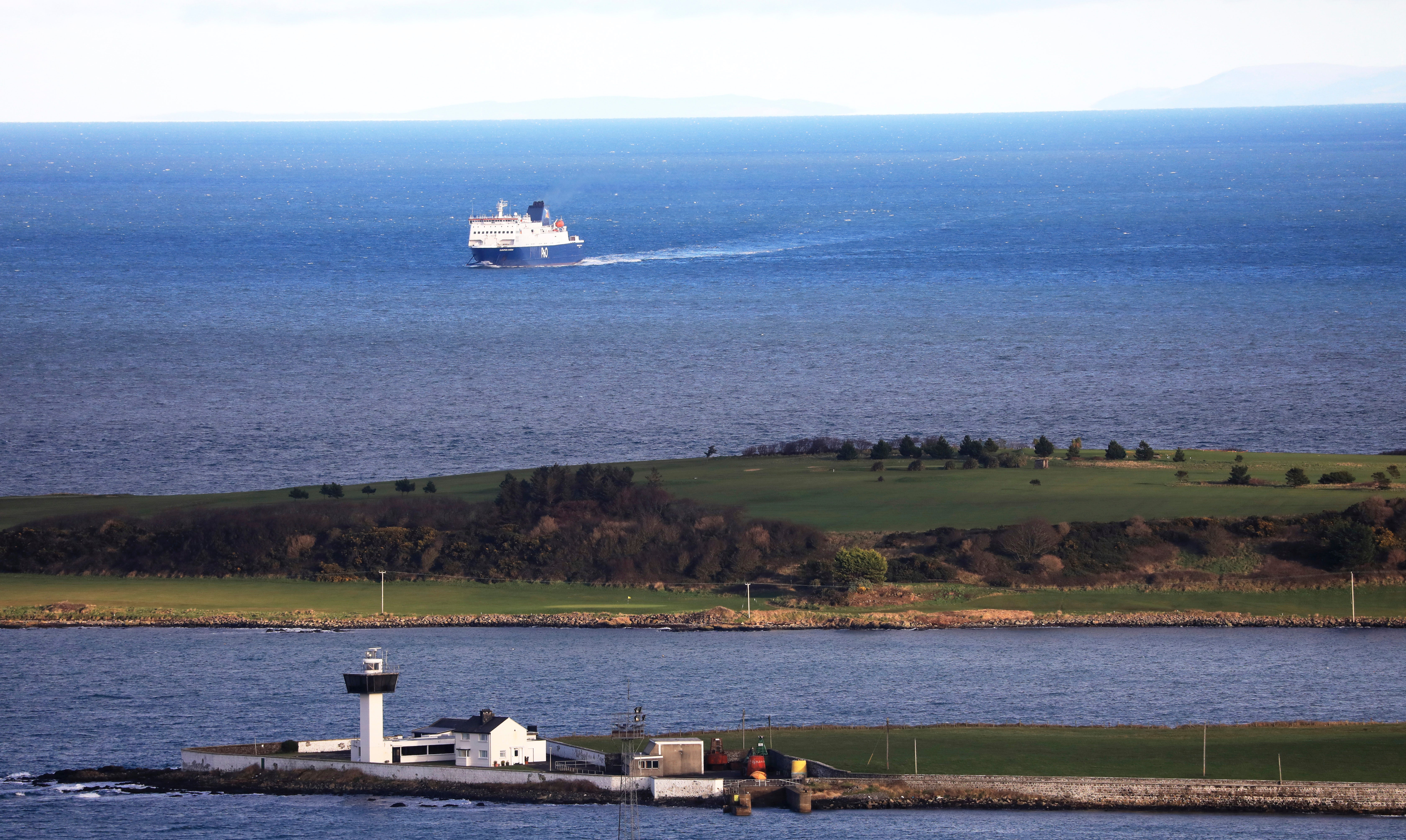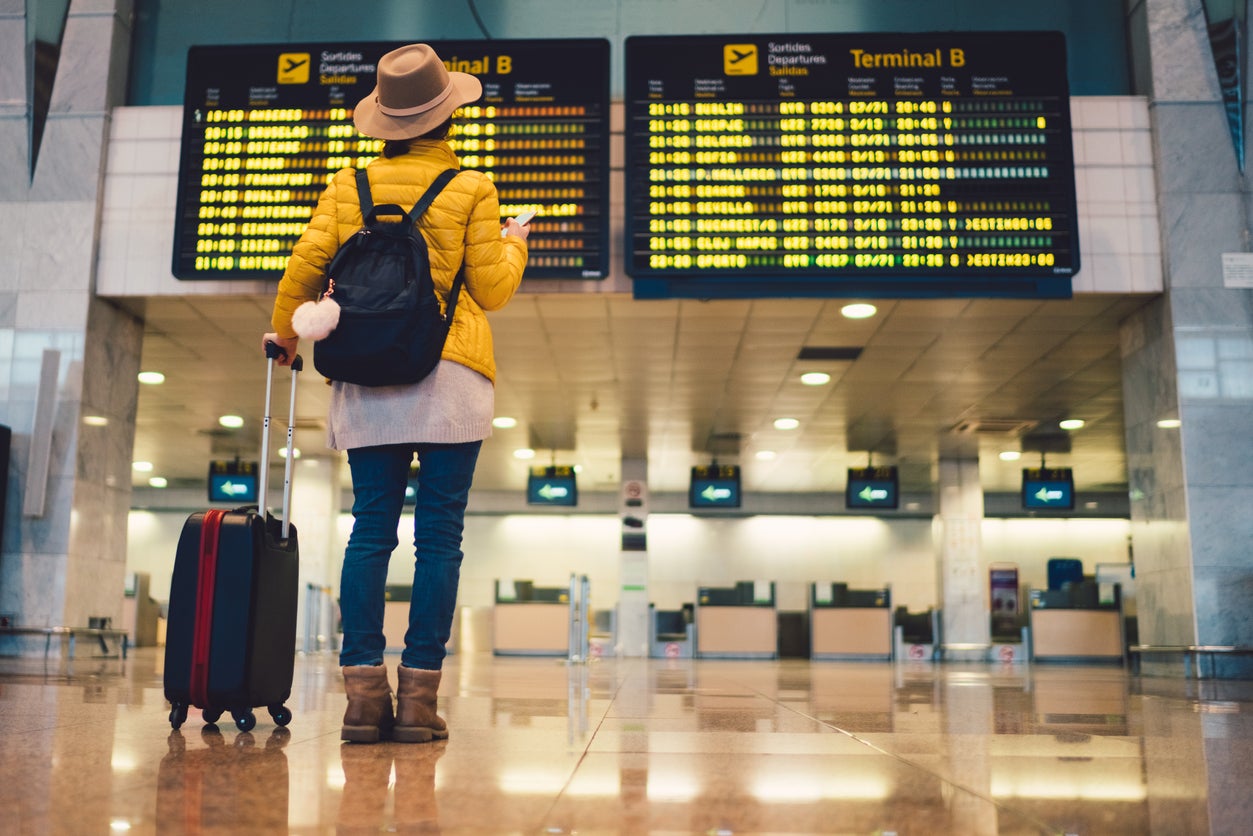How could Eurotunnel have responded better to train stuck under the Channel?
Simon Calder answers your questions on ferry passengers’ rights, airport strikes in Spain, flight compensation, and being stranded below the sea


Q Do you have any thoughts on how badly Eurotunnel handled the stuck train earlier this week, both for the passengers on the shuttle and those waiting at the terminals? How can they be encouraged to improve communications and handling in the future?
Rich72
A On Tuesday afternoon a Calais-to-Folkestone car-carrying shuttle with around 100 vehicles on board came to a halt in the Channel Tunnel due to an alarm on the train. Eurotunnel tells me: “As a precautionary measure, for their safety and comfort, we transferred the passengers on board to another shuttle, via the service tunnel (which is there for exactly that purpose) whilst we investigated the cause of the alarm. The service tunnel is a functional environment built as a 50km-long ‘lifeboat’ to provide a safe haven and enable an easy transfer to another train. The transfer train was another passenger shuttle – again a functional solution.
“Operations like this do take time, but they are for the safety of everyone and must be conducted carefully. Unfortunately, that means that other customers can suffer extended crossing times. However, we put on additional departures to try to reduce that as much as possible and offered the option of a transfer to a ferry as an alternative. Whilst some passengers experienced a longer journey than planned, everyone was kept safe at all times.”
The Channel Tunnel has the obvious and significant dimension of being deep below the sea. If a ferry suffers a technical problem in the Channel (as they do from time to time) people are fully aware of their surroundings. But on a Eurotunnel shuttle, or indeed a Eurostar train, it is different. In addition, Eurotunnel is often popular among people with concerns about mobility or anxiety, because motorists and passengers remain in their vehicles. Unlike on ferries, they don’t need to clear the car deck.
But in Tuesday’s event people were offloaded from the familiarity of their vehicle into the service tunnel and then into another shuttle – during which, nothing was moving for passengers at both Folkestone and Calais who were hoping to travel.
Eurotunnel will no doubt look at how it could have communicated better. I think there is also a case for a routine safety briefing that provides more depth about the evacuation plan – just as airline passengers are told in great detail what to expect in the highly unlikely event of having to evacuate.

Q Can a ferry company close check-in and sail early? This happened last week with our Irish Sea crossing. We got a text stating that our sailing had been delayed and that check-in would therefore close at 8.20am. We arrived at 8.10am to find the gates locked. We were put on the next ferry at 2.30pm. Can we get a refund or compensation?
Name withheld
A Ferry operators typically ask passengers to be at the port no later than 30, 45 or 60 minutes before departure (the time can depend on whether or not they are taking a vehicle). They usually stipulate that you must have completed check-in formalities by this time, though in your case you appear not to have had the chance to begin them.
Alerting customers to a delay is a creditable act, so long as the firm then keeps its word. In your position I would be mightily cheesed off to comply with a specific text message only to find that I had missed the boat through no fault of my own.
European ferry passengers’ rights rules, which still pertain for departures from British ports after Brexit, do not tackle the position you found yourself in. But from the facts as you present them, you can reasonably say that you were delayed by around six hours.
Ferry passengers’ rights are more meagre than for airline travellers; had you faced a wait of more than three hours for a plane, you would be in line for hundreds of pounds of compensation. But you should be able to secure a refund of half your fare, provided that the ferry operator agrees with your claim.
You will need to demonstrate that you met the deadline in the text from the company. The ferry firm may push back, by saying that the vessel made up time and departed ahead of the deadline due to weather conditions or because of “extraordinary and unavoidable circumstances”. But the operator will need to provide documented evidence to substantiate its defence. Good luck.

Q I am seeing reports of airport strikes in Spain. I am due to fly on 17 September, is there any truth in these?
Colin T
A Given the awful summer that some travellers have experienced due to everything from air-traffic control problems to a chronic shortage of baggage handlers, it is understandable that some reports are already characterising the proposed industrial action for the autumn and winter as “travel chaos”.
There is undoubtedly a lot of anger among people working right across the aviation industry about pay and working conditions – with the standard complaint that they are working too hard for the amount they earn. I believe they deserve some sympathy: up to the coronavirus pandemic, the trend was to boost productivity at all costs, by extracting more work from the same number of people. In Spain, as in other countries, union members have given a strong mandate for strikes. In this particular dispute, the Spanish airport operator Aena is facing action from members of the USO, CCOO and UGT unions.
Workers covering everything from airport security to apron duties are set to walk out on five days in September, seven days in October, two days in November and 11 days in December. The first three days are 15, 17 and 22 September – so your journey could theoretically be affected. However, I am a fairly optimistic that the amount of disruption is likely to be fairly small. Since aviation is so central to Spain’s economy, there will be strenuous efforts to avoid a walkout. Even if strikes do go ahead, the Spanish requirement for minimum service levels is likely to keep most flights in the air even on strike days.
If I am wrong, and your flight is disrupted, then the airline will be responsible for finding you an alternative way to reach your destination, on the original day of travel if at all possible.

Q Due to the capacity limit at London Heathrow, our flight to Los Angeles was cancelled just 20 hours prior to departure. We were rebooked via New York JFK 48 hours later. As a result, we lost two days of our holiday. The airline has said as the cancellation was due to “extraordinary circumstances” we would not be entitled to compensation. Do we have recourse?
Thirty Three F
A Your airline is quite right to say that compensation under European air passengers’ rights rules is not payable. Heathrow’s self-decreed cap of 100,000 on departing travellers is the epitome of “extraordinary circumstances” – the only way in which a carrier can avoid paying out for a short-notice cancellation.
But the airline should certainly have discussed options for getting you to southern California on the same day as originally planned. That could not involve flying from Heathrow (it would defeat the point of the cancellation) but there are plenty of other ways to get you there – of which the most obvious, to me at least, would be a flight from Gatwick to Dublin on Aer Lingus and an onward flight on the same airline to Los Angeles. Another possibility: British Airways from Gatwick to Amsterdam and KLM or Delta from there. “Involuntary re-routing” itineraries like these are entirely standard in the aviation industry. The reason, by the way, I haven’t mentioned easyJet or Ryanair connections is because your airline would not be able to provide a through ticket – raising the risk of leaving you unprotected if your flight on Ryanair to Dublin or easyJet to Amsterdam ran late.
In the unlikely case that there were no such connecting flight options, another choice could be a Eurostar train from London to Paris or Brussels to connect with a departure from their main airports to the US west coast – though this might not work on a strike date involving Network Rail, reducing services and availability.
So why didn’t your airline come up with any of these? Because it is clearly in its interests not to pay other carriers to fly you. The fact that you were not offered other options is, I believe, grounds for you to apply for the costs you lost by being two days late in reaching Los Angeles. But it will probably prove a battle to claim.
Email your question to s@hols.tv or tweet @SimonCalder
Join our commenting forum
Join thought-provoking conversations, follow other Independent readers and see their replies
Comments
Bookmark popover
Removed from bookmarks